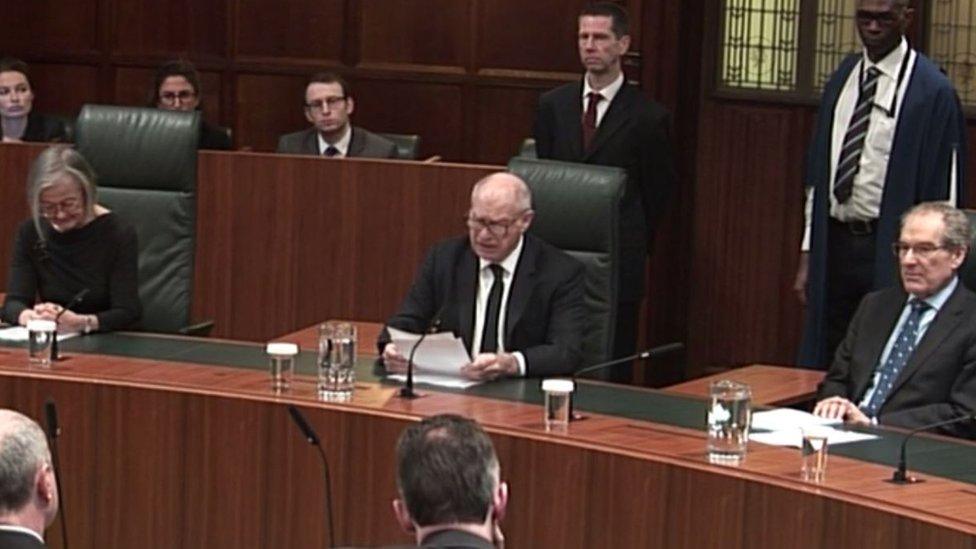Shadow Welsh secretary quits over Brexit vote
- Published
- comments
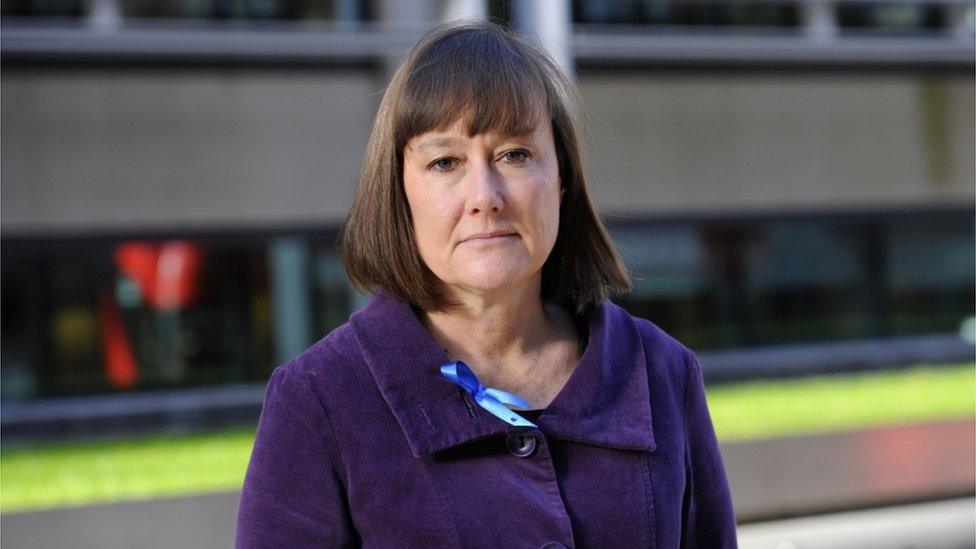
Jo Stevens has quit as Jeremy Corbyn's shadow Welsh secretary after he forced Labour MPs to back the Article 50 bill.
The Cardiff Central MP said she believed Brexit was "a terrible mistake" and said she "cannot reconcile my overwhelming view" that to endorse the bill would make it inevitable.
She is the first member of the shadow cabinet to quit over the issue.
Party leader Mr Corbyn said MPs in pro-EU constituencies were "understandably torn" over the vote.
Her resignation follows that of Tulip Siddiq, who quit as shadow early years minister on Thursday after the Labour leadership imposed a "three-line whip".
Frontbench members of parties are generally expected to resign from their posts if they choose to defy a three-line whip, which is the strongest form of discipline political party leaders can impose.
'No guarantees'
Ms Stevens set out her opposition to triggering Article 50 in a resignation letter.
She wrote that the government had offered "no guarantees" that "single market access, employment, environmental and consumer rights, security and judicial safeguards" would be protected after Brexit.

Analysis
By BBC political correspondent Ben Wright
Labour's Brexit bind is not hard to grasp.
The vast majority of Labour MPs campaigned to keep Britain in the EU. But most now represent constituencies that voted to leave.
And as Parliament prepares to vote on triggering divorce talks with Brussels, Labour MPs are being ordered to approve the start of Brexit by a party leader who spent his backbench career ignoring similar demands for discipline.
Read more: Labour's Brexit dilemma

The Cardiff Central MP also said a lack of "guarantees for the people of Wales" contributed to her decision to defy her party leadership.
Cardiff voted to remain in the EU during the 2016 referendum, and remains a target of the pro-EU Liberal Democrats.
Jeremy Corbyn responded to Ms Stevens's resignation saying: "I understand the difficulties that Jo, and other MPs, have when facing the Article 50 Bill. Those MPs with strong Remain constituencies are understandably torn."
He continued: "We have said all along that Labour will not frustrate the triggering of Article 50 and to that end we are asking all MPs to vote for the Bill at its second reading next week."
Two Labour whips - MPs in charge of parliamentary party discipline - have said they will vote against the EU (Notification of Withdrawal) Bill, despite the order to support it.
Jeff Smith and Thangam Debbonaire have said they will vote against it although neither have resigned their posts as party whips.
Another shadow minister Daniel Zeichner has also said he will vote against the bill, as will other MPs including former Culture Secretary Ben Bradshaw.
'Unite'
The European Union (Notification of Withdrawal) Bill, external was introduced after the Supreme Court ruled that parliament - not just the government alone - must vote to trigger Article 50 of the Lisbon Treaty, which starts the formal process of the UK leaving the EU.
Mr Corbyn has said he understands the pressures faced - many Labour MPs represent constituencies which voted to remain in the European Union - but called on them to "unite" around "important issues".
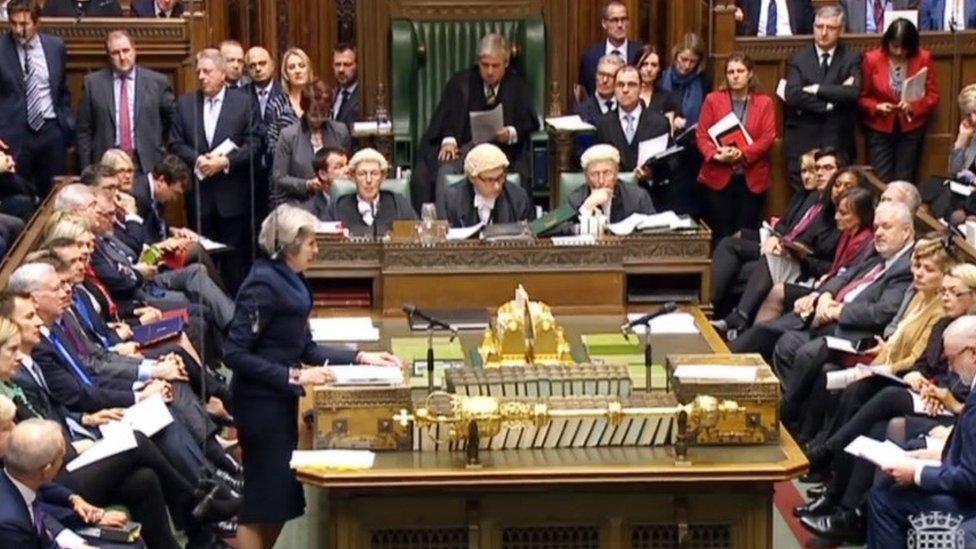
The bill on Article 50 was published on Thursday
Shadow Home Secretary Diane Abbott said voting against the bill would "be very undermining of democracy".
"MPs voted for a referendum, there was an extraordinary high turn out - 72% - 17m people voted to leave. Many of them in some of our poorest areas," she told the BBC.
She added: "How would it look if a bunch of politicians and commentators in London turned round and said: 'We know you voted to leave but we're just going to ignore you?'"
But senior Labour backbencher Meg Hillier told the BBC some of her east London constituents were "horrified" at Mr Corbyn's stance.
"Certainly in Hackney the rage in the room was palpable - and people are really concerned. My constituency voted 78% to remain [in the EU] and while a lot of those people recognise the outcome of the referendum, we just don't want a blank cheque."
Prime Minister Theresa May has promised to begin the formal process of quitting the European Union by the end of March.
The bill is due to be initially debated by MPs on Tuesday - in a sitting that may last until midnight - and clear the Commons on 8 February, after which it will move to the House of Lords.
The Liberal Democrats have vowed to oppose Article 50 unless there is a guarantee of another referendum on the final Brexit deal that is agreed with Brussels, while the SNP has vowed to table 50 amendments to the legislation.
- Published27 January 2017

- Published25 January 2017
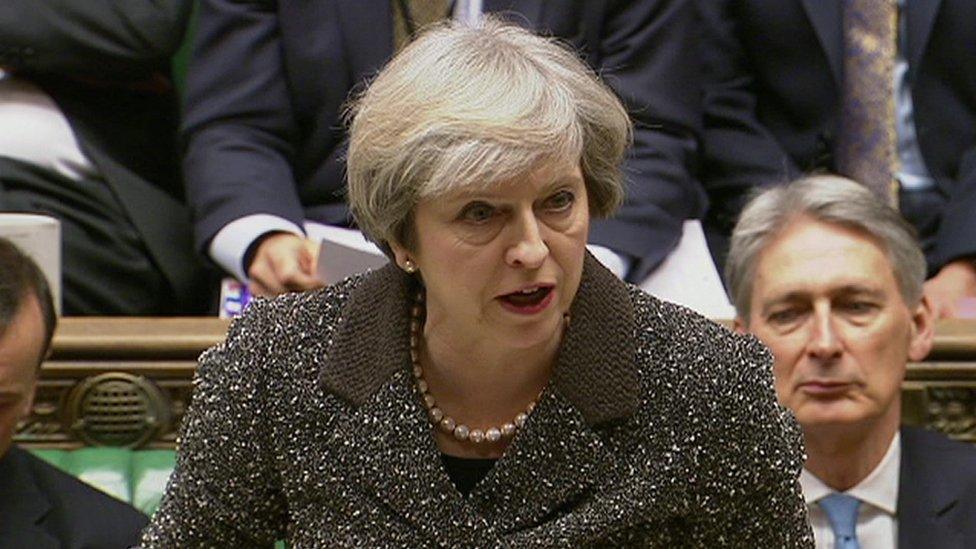
- Published24 January 2017
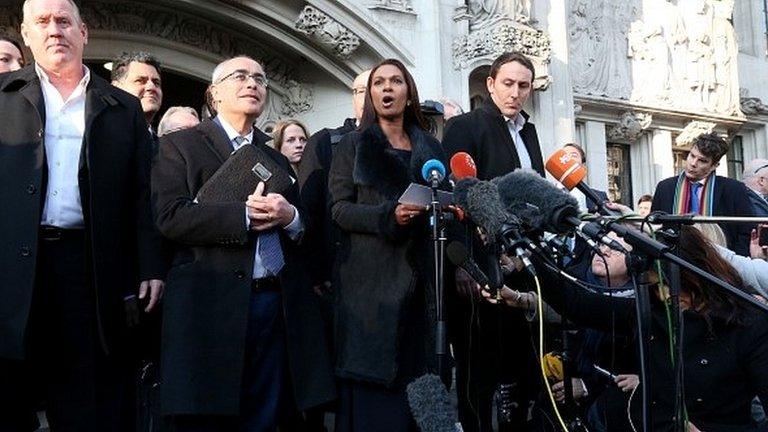
- Published25 January 2017
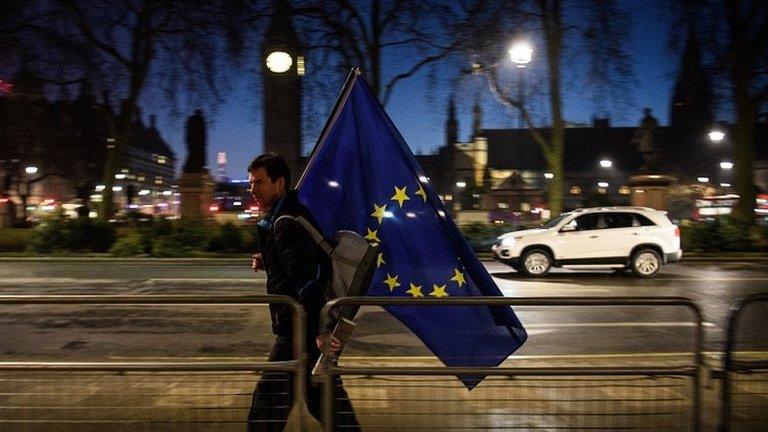
- Published24 January 2017
